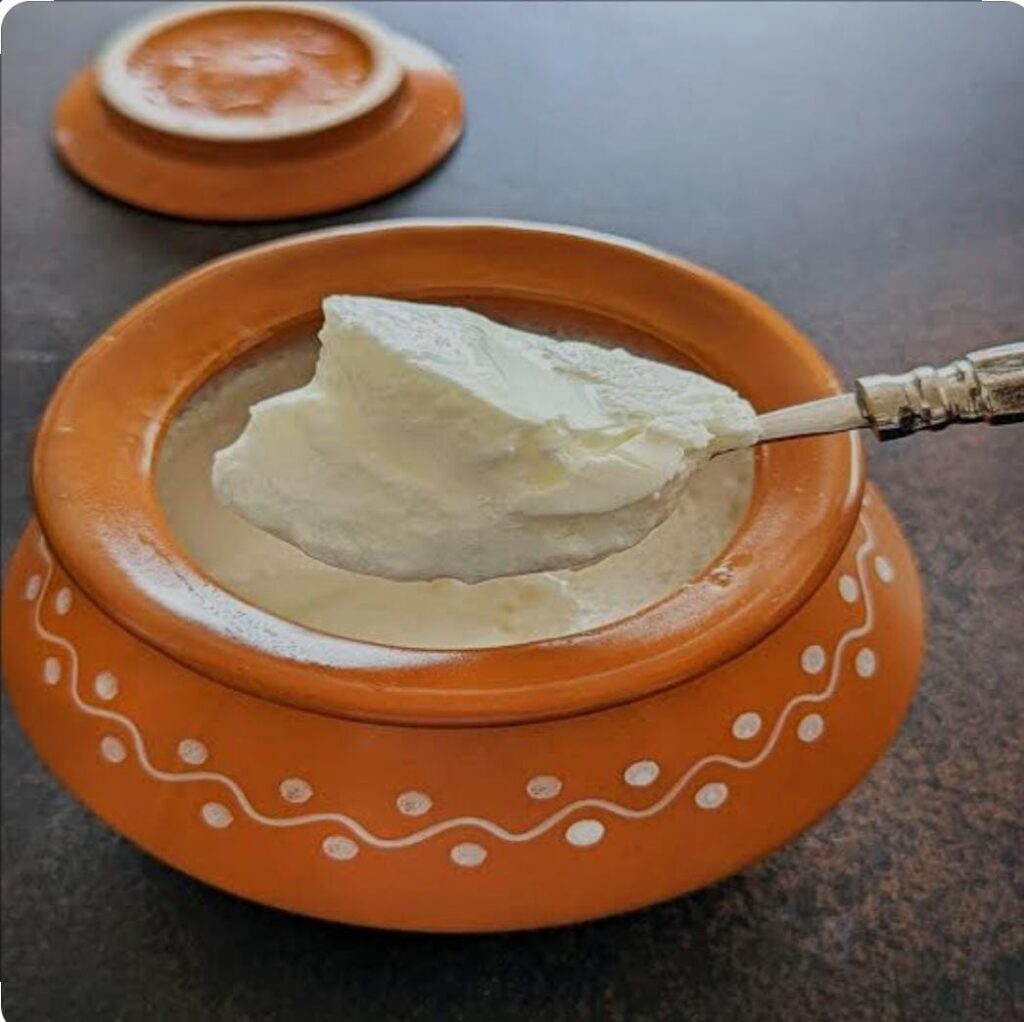Eating Less, Living Less: The Ayurvedic Warning for Crash Dieters !!!”
Patient Story: When Dieting Went Wrong – An Ayurvedic Insight As an Ayurvedic physician, I recall the case of Megha, a 30-year-old software professional who came to me with complaints of persistent fatigue, disturbed sleep, hair fall, mood swings, and severe bloating. She had been following a strict low-calorie diet for the past 6 months in an attempt to lose weight. Initially, she noticed some weight loss, but soon after, her energy plummeted, her skin became dry, and she developed irregular periods. Upon detailed questioning, I found that Megha was skipping meals, eating very little, and avoiding nourishing foods in the name of “clean eating.” Her food lacked adequate fats, proteins, and warm, grounding meals necessary for her constitution. From an Ayurvedic perspective, Megha was suffering from vata imbalance caused by undernourishment and improper quantity of food. According to our classical understanding: Consuming less quantity of food: 🙄Does not increase strength. 😧Reduces Ojas, the essence of immunity and vitality. 😥Prevents proper nourishment of the body (dhatu poshana becomes weak). 😭Over time, leads to vata disorders such as insomnia, anxiety, dryness, and constipation. Megha’s condition was a classic case of langhana (lightening therapy) gone wrong. While langhana is a therapeutic approach used in Ayurveda to manage conditions of excess, it should always be done under supervision and suited to the individual’s prakriti (constitution), agni (digestive fire), and vikriti (imbalance). Moreover, Megha confessed that on weekends, she would overeat due to cravings—this led to periods of overeating, which further aggravated her doshas, especially kapha and pitta, leading to bloating and inflammation. Excessive food consumption: Is equally undesirable. Causes a quick increase in doshas, leading to imbalances like indigestion, weight gain, acne, and lethargy. Treatment Approach: For Megha, I initiated a Vata-pacifying regimen: Warm, unctuous, and freshly cooked meals. Regular mealtimes without skipping. Inclusion of ghee, soups, and nourishing herbs Early to bed and wake cycle. Gentle abhyanga (oil massage) with sesame oil to ground the vata. Pranayama and guided meditations to reduce anxiety. Use of classical formulations to restore ojas and strengthen digestion. Within 6 weeks, Megha began to regain her strength, her periods normalized, and she reported better sleep and clarity of mind. Conclusion: In Ayurveda, quantity of food is as important as its quality. Eating less or more than what your agni can handle disrupts the delicate balance of doshas. The goal should never be weight loss at the cost of health, but rather balanced nourishment, strong digestion, and vibrant ojas !!!
Why your fasting isn”t working : A message from an ayurvedic physician
I often hear this: “Doctor, I’ve been fasting the whole day. I don’t eat anything from morning to night. But still, my weight isn’t reducing. In fact, I feel more tired, bloated, and low.” Let me gently explain why this kind of fasting may be doing more harm than good. Sleeping All Day Isn’t Fasting. It’s Starving the System. Simply skipping food from sunrise to sunset, lying in bed all day, or sitting under the AC without movement—that’s not fasting. That’s called metabolic slowing. Your body is not burning fat. It’s going into energy preservation mode—slowing down digestion, reducing metabolic fire (agni), and increasing toxins (ama). Instead of weight loss, you might notice: Irritable moods Fasting Needs Movement. Energy Needs Circulation. Fasting is meant to reset the digestive system, not shut it down. Ayurveda encourages light movement, gentle stretches, and mindful walking during fasting to help kindle agni (digestive fire) and circulate prana (life force). Sleeping all day while fasting builds stagnation, not vitality. It’s like keeping firewood ready but not lighting the match. Ayurveda’s View: Fasting Must Be Aligned With Your Body Type and Season Not every person benefits from prolonged fasting. Especially if you: For such individuals, fasting aggravates Vata—leading to dryness, anxiety, poor sleep, and slower metabolism. Weight Loss Isn’t About Eating Less. It’s About Eating Right and Moving Right. If your goal is to reduce weight, just not eating is not enough. You need to: So What Should You Do Instead? If you feel fasting is not working for you, try this Ayurvedic routine: Ayurveda is not anti-fasting.Ayurveda is about intelligent fasting.Fasting that aligns with your body, your activity level, and your environment. Stop punishing your body with starvation.Start nourishing it with rhythm, warmth, and mindful movement. That’s the real way to reduce weight, balance hormones, and feel like yourself again !!!
Battery Low? Here’s Why Your Body Keeps Running Out of Energy”
Are you constantly feeling tired, mentally foggy, or physically drained no matter how much rest you get? When your body’s internal battery runs low, it’s a signal that your core energy systems are under strain. The top three systems responsible for your energy are: The thyroid gland governs how fast or slow your body converts food into energy. When it’s underactive—like in hypothyroidism or Hashimoto’s thyroiditis—you’ll notice symptoms like fatigue, weight gain, cold sensitivity, and brain fog. The key player here is T3 (Triiodothyronine), the active thyroid hormone, which directly powers your mitochondria (your energy factories). Low T3 = sluggish mitochondria = low energy output. The adrenal glands produce hormones like cortisol and adrenaline, helping your body adapt to stress. Chronic stress or autoimmune conditions like Addison’s disease can lead to: Constant fatigue Low blood pressure Muscle weakness Poor appetite Skin pigmentation changesWhen your adrenals are overwhelmed, your energy reserves deplete rapidly. Your mitochondria convert nutrients—especially fats—into ATP (cellular energy).But factors like poor nutrition, toxins, inflammation, infections, or oxidative stress can damage them.Symptoms of weak mitochondria include: Energy crashes after meals Muscle pain Poor stamina Feeling exhausted even after rest Even if your thyroid, adrenals, and mitochondria are trying their best, they can’t function without proper nutrients.Deficiencies in key vitamins and minerals like B12, iron, magnesium, selenium, iodine, and CoQ10 can: Lower your metabolism Impair mitochondrial function Lead to fatigue, anxiety, and weakness Lack of deep, restorative sleep and excessive screen time can disturb your body’s natural energy rhythm. Sleep is when your adrenals and mitochondria repair. Staying up late or inconsistent sleep patterns can lead to energy debt over time. Bottom Line:If your energy feels like it’s running on 1%, it’s not just about sleep or caffeine. Look deeper—into your thyroid, adrenals, mitochondria, and overall lifestyle. Recharge naturally through balanced nutrition, stress management, deep sleep, and healing the root cause rather than just masking fatigue.
Why ayurveda warns against modern seed oils?

In Ayurveda, seed oils, especially highly processed and refined vegetable oils, are not considered ideal for health due to the following reasons: 1. Heaviness & Indigestion (Guru & Ama Formation) Many seed oils, especially refined ones, are heavy (guru) in nature, making them difficult to digest. Poor digestion (agni) leads to toxin (ama) buildup, which can cause metabolic disorders .2. Disturbance of DoshasVata Aggravation: Highly processed oils lack the grounding and nourishing qualities of natural fats, which can worsen Vata-related issues like dryness, anxiety, and joint pain. Pitta Aggravation: Oils from sunflower, safflower, and canola are heating in nature and can increase Pitta, leading to inflammation, acidity, and skin issues. Kapha Imbalance: Heavy and refined oils can clog channels (srotas), leading to weight gain, sluggishness, and cholesterol imbalance. 3. Loss of Prana (Vital Energy)Traditional Ayurvedic fats like ghee, sesame oil, and coconut oil are considered high in prana (life energy).Highly processed seed oils lose their prana due to industrial extraction methods, making them lifeless and tamasic (dull and low-energy food). 4. Toxicity & Oxidative StressModern seed oils (e.g., soybean, sunflower, corn) are extracted using high heat and chemicals, which degrade their quality. These oils are high in unstable polyunsaturated fats (PUFAs), which oxidize quickly and create free radicals, leading to inflammation and aging .5. Altered Agni (Digestive Fire) & Metabolic IssuesProcessed oils suppress digestive fire (agni), leading to poor metabolism, sluggish digestion, and accumulation of bad cholesterol. Ayurveda recommends natural fats like ghee to kindle agni rather than suppress it .6. Impact on Mind (Manas) & EmotionsAyurveda classifies foods based on their effect on the mind—sattvic (pure), rajasic (stimulating), and tamasic (dull). Processed seed oils are considered tamasic, leading to lethargy, mood swings, and a foggy mind. So what are the ayurvedic alternative for seed oil? Ghee (Clarified Butter) Properties: Satvic, nourishing, enhances agni, improves memory and digestion. Best for: All doshas, especially Vata and Pitta. Use in moderation for Kapha. Uses: Cooking, sautéing, adding to rice, lentils, or even using in desserts. 2. Cold-Pressed Sesame Oil Properties: Warming, grounding, antioxidant-rich. Best for: Vata disorders; also used in abhyanga (oil massage). Uses: Cooking, oil pulling, nasal drops (nasya), body massage. 3. Cold-Pressed Coconut Oil Properties: Cooling, nourishing, antibacterial. Best for: Pitta body types and summer season. Uses: Cooking (especially in South Indian cuisine), oil pulling, skin care. Mustard Oil (Cold-Pressed) Properties: Warming, stimulating, anti-inflammatory. Best for: Kapha and Vata types, winter season. Uses: Cooking in Northern India, massage oil, external use for aches and pains. Groundnut (Peanut) Oil – Cold-Pressed Properties: Heavy, slightly warming. Best for: Occasional use for Vata and Kapha, but not preferred in excess. Caution: Can be heavy for digestion; avoid in case of acne, sluggish digestion. 6. Gingelly Oil (Unrefined Black Sesame Oil) Properties: Rich in minerals, grounding, detoxifying. Uses: Especially used in Tamil and South Indian Ayurvedic traditions. Ayurvedic Tips for Oil Usage: Always prefer cold-pressed, organic, and native varieties. Avoid refined or hydrogenated oils, as they are tamasic (promote dullness/toxicity). Choose oils based on your dosha, climate, and health status. Don’t overuse oil—moderation is key in Ayurveda.
The #1 Reason Your Hair Products Aren’t Working – It’s Not What You Think!

Why do influencer hair remedies fail to work for everyone? Most influencers promote one-size-fits-all remedies without considering individual hair porosity. For example, rice water is great for high porosity hair but can make low porosity hair stiff and protein-overloaded. Using the wrong remedy can worsen dryness, breakage, and hair loss. Why does my hair feel greasy even after washing? Answer :If you have low porosity hair, your cuticles are tightly sealed, making it difficult for oils and products to penetrate. Instead of nourishing your hair, heavy oils sit on the surface, leading to build-up, limp hair, and scalp issues. Can too much protein damage my hair? Yes! High porosity hair needs protein to fill cuticle gaps, but low porosity hair already has a tight cuticle. Using too many protein-rich treatments (like egg masks, keratin products, or rice water) can make low porosity hair brittle, stiff, and prone to breakage. Why do deep conditioning treatments sometimes make my hair feel worse? If you have low porosity hair, using thick, heavy conditioners can sit on the hair without being absorbed, causing product buildup. Instead, use lightweight, water-based conditioners or apply heat (like a warm towel wrap) to help the moisture penetrate. What’s the biggest mistake people make when choosing hair oils? Using the wrong oil for your porosity! Low porosity hair needs lightweight oils like jojoba or argan to prevent buildup. High porosity hair needs heavier, sealing oils like castor or coconut to lock in moisture. Answer: If you apply oil to dry hair without hydrating it first, it just sits on top instead of moisturizing. Always spritz your hair with water or herbal infusions before applying oil to help it absorb properly. Using the wrong products can cause build-up, clogged follicles, protein overload, or moisture loss, leading to weak hair, excessive shedding, and slow growth. Understanding your porosity is key to choosing the right routine for strong, healthy hair. 🚨 STOP following random hair hacks! 🚨 Most viral influencer remedies damage hair if you don’t know your porosity! ❌ Rice water isn’t for everyone—it can make low porosity hair stiff. ❌ Heavy oils can cause buildup if your hair doesn’t absorb them. ❌ Too much protein can lead to breakage! 💡 Instead, understand your hair’s needs first—Ayurveda teaches how to balance moisture, oil, and strength naturally!
Why Curd Is Not an Everyday Food in Ayurveda?

Curd, though often promoted in modern nutrition as a gut-friendly and protein-rich food, holds a different place in Ayurveda. It is not considered an ideal daily food due to its “Abhishyandi” nature — a quality that leads to the obstruction of bodily channels (srotas), disturbing the balance of doshas and impairing digestion. While some nutritionists suggest curd to curb appetite or manage weight, the Ayurvedic perspective emphasizes its long-term impact on Agni (digestive fire) and dosha balance, especially Kapha and Pitta. Why Curd Is Cautioned in Ayurveda ? Curd is guru (heavy) in nature. It taxes the digestive system, especially if Agni is low or irregular. Its picchila (slimy) and snigdha (unctuous) properties make it prone to sticking to body channels, leading to srotorodha (blockage of channels). Ayurvedic Guidelines for Consuming Curd: Curd has ushna virya (hot potency). It can aggravate Pitta, leading to issues like nasal bleeding, skin rashes, excessive menstrual bleeding, and acidity. Avoid it completely during peak summer months and in any condition involving heat or bleeding. Nighttime is naturally dominated by Kapha. Eating curd then can trigger or worsen cold, cough, sinusitis, throat infections, or allergies due to increased mucus formation. If you are prone to respiratory issues, eliminating curd from dinner can bring great relief. Heating curd changes its molecular and energetic properties. It loses its probiotic value and becomes incompatible (viruddha ahara), which may lead to Ama formation (toxins) and poor digestion. Curd should not be consumed with fruits, fish, or meat. These combinations are considered viruddha ahara and can lead to long-term imbalances including skin disorders and digestive disturbances. So, When Can You Have Curd? Prefer Daytime Consumption — preferably before sunset and in moderate quantities. Do Not Make It a Daily Habit — restrict to 1-2 times a week if your digestion is strong. Always Add Spices — such as black pepper, cumin, or rock salt to aid digestion and reduce Kapha. Avoid During Illness or Weak Digestion — especially if suffering from cold, cough, allergies, fever, or inflammatory conditions. Buttermilk – The Safer Alternative If you love curd, switch to Takra (buttermilk) — a time-tested digestive nectar in Ayurveda. Made by churning curd with water and adding digestive spices like hing, jeera, black salt, it pacifies Kapha and Vata, aids in digestion, and does not aggravate Pitta. In Summary: Curd is not a villain, but like many things in Ayurveda, its benefit lies in how, when, and how much you consume it. Awareness of your dosha, season, time of day, and digestive strength are key to reaping any benefits while avoiding harm. If you experience frequent digestive issues, allergies, or skin problems—start by observing your curd habits. Sometimes, simple shifts can bring deep healing !!!
Prana-Rich Fruits vs Lifeless Juices: What’s Better for Your Health?

Fruit Juice vs Whole Fruits: What’s the Real Difference, Doctor? One of my patients recently asked me this very common question—“Aren’t fruit juices just as healthy as eating fruits?” That inspired me to write this article. So the next time someone insists that fruit juice is healthier than whole fruits, just show them this. Title: Why Fruits Are Better Than Fruit Juices – An Ayurvedic Perspective In our modern lifestyle, fruit juices are often marketed as healthy and convenient options for nutrition. But as an Ayurvedic physician, I often find myself guiding patients away from juices and gently redirecting them to whole fruits. Why? Because Ayurveda sees food not just as a collection of nutrients, but as prana – life force – that nourishes body, mind, and spirit. Let us decode this deeper 1. Fruit vs Fruit Juice – What’s the Difference? Whole Fruit contains fiber, natural sugars, water content, enzymes, and phytonutrients in perfect balance. It is slow to digest and provides sustained energy. Fruit Juice, especially when extracted, strained, or stored, loses most of its fiber and prana. It becomes a concentrated form of sugar and loses its natural intelligence. From an Ayurvedic standpoint, this is not just a nutritional loss – it’s a loss of harmony and vitality. 2. Ayurvedic View on Fruits: Fruits are considered sattvic – they purify the mind and nourish the tissues gently. They are: Madhura rasa pradhana (sweet-tasting) Sheeta virya (cooling in nature) Laghu (light for digestion) Pranavardhaka (enhance life force) They pacify vata and pitta, and when taken in moderation, even kapha. Fruits offer ojas, the subtle essence of all bodily tissues, which builds immunity, clarity, and emotional stability. 3. What Happens When You Juice a Fruit? From an Ayurvedic perspective: The fiber (prakriti-sahaja agni-balakara dravya) is removed. Fiber acts like a srotoshodhana (channel-cleanser) and supports healthy digestion. Juicing increases the glycemic index – leading to kapha vriddhi (kapha aggravation), weight gain, mucus production, and sluggishness. Juices, especially when taken cold or stored, diminish agni (digestive fire) and lead to ama utpatti (toxin formation). Drinking juice too often can also increase asatmya (incompatibility) in metabolism and weaken dhatu poshana (tissue nourishment). 4. Common Observations in Practice: Patients who consume fruit juices frequently complain of: Bloating or gas (vata vitiation) Sluggish digestion or heaviness (kapha aggravation) Blood sugar spikes Weak appetite Frequent colds or sinus congestion (kapha-vata imbalance) Dental sensitivity or decay (due to acidic, sugary nature of juices) 5. Ayurvedic Guidelines for Eating Fruits: Eat fruits whole and fresh, ideally seasonal and local. Avoid mixing fruits with milk, yogurt, or heavy meals – it becomes a viruddha ahara (incompatible food). Best time: Empty stomach, preferably in the morning or midday. Avoid fruits post-sunset, especially citrus or sour fruits, as they may aggravate vata. Fruits like bananas, mangoes, and grapes are nourishing; pomegranates, apples, and figs are balancing; citrus and watermelon are best during hot seasons in moderation. Conclusion: In Ayurveda, we do not just count calories – we observe qualities, energies, and effects. Fruits in their natural, whole form are rich in prana and bring balance, while juices – especially processed or taken at the wrong time – are devoid of vitality, disturb doshas, and weaken digestion. So next time you reach for a juice, pause. Choose a fruit instead. Let your body experience nature’s intelligence in its complete form.
True Health Lies in Nature, Not in Pills – An Ayurvedic Perspective

“True health is not just about managing symptoms but about aligning with nature’s wisdom.” Ayurveda believes in treating the root cause, not just symptoms. Modern medicine often focuses on symptom management, while Ayurveda aims for long-term balance by aligning with nature’s rhythms. Ayurveda teaches that health is sustained through daily and seasonal practices: Ahara (diet) emphasizes natural, fresh, and seasonal foods. Vihara (lifestyle) includes physical activity, mindfulness, and ethical living. Dinacharya (daily routine) ensures a disciplined approach to self-care. Ritucharya (seasonal regimen) helps the body adapt to environmental changes. Pranayama (breathwork) strengthens the mind-body connection. Agni (digestive fire) is central to health, as proper digestion prevents disease. Ayurveda sees health as a balance of the three doshas (Vata, Pitta, Kapha). When in balance, the body can heal itself. Mental and spiritual well-being are equally important in maintaining health. While modern medicine relies on pharmaceuticals, Ayurveda encourages natural healing through herbs, detoxification, and lifestyle changes. The phrase “innate healing intelligence” refers to the body’s ability to heal when given the right support.
Can a well balanced nutritious diet alone provide good health?

A well-balanced, nutritious diet is essential for good health, but diet alone is not enough to maintain overall well-being. True health is a combination of nutrition, lifestyle, mental balance, sleep quality, and physical activity. Here’s why: A balanced diet provides essential nutrients for bodily functions, but how well these nutrients are absorbed and utilized depends on digestion, gut health, and metabolism. Even the best diet won’t work if digestion is weak due to stress, poor sleep, or lack of physical activity. Physical Activity – Movement boosts metabolism, circulation, and digestion. A sedentary lifestyle leads to obesity, insulin resistance, and weak muscles. Sleep Quality – Even with perfect nutrition, poor sleep can cause hormonal imbalances, increased cravings, and metabolic disorders. Stress & Mental Health – Chronic stress raises cortisol levels, which can lead to weight gain, poor digestion, and lifestyle diseases. Hydration – Water is crucial for digestion, detoxification, and metabolism. Dehydration can cause fatigue, constipation, and toxin buildup. According to Ayurveda, health is achieved when: Ahara (Diet) is wholesome and suited to one’s prakriti (body type). Vihara (Lifestyle) includes proper sleep, physical activity, and stress management. Dinacharya (Daily Routine) aligns with nature’s cycles for better digestion, detoxification, and hormonal balance. Ojas (Vital Energy) is maintained through good digestion, emotional stability, and a sattvic (pure) lifestyle. Let’s take diabetes as an example: A perfect diet can help regulate blood sugar, but without exercise and stress management, insulin resistance may persist. Poor sleep can trigger cravings for sugary foods, undoing the benefits of a healthy diet. If digestion is weak, even nutrient-rich foods may not be absorbed well, leading to deficiencies. Conclusion A nutritious diet is the backbone of good health, but it must be complemented with:✔️ Regular movement & exercise✔️ Quality sleep & stress management✔️ Proper hydration & mindful eating✔️ Healthy daily routines (dinacharya) aligned with nature
Why Solving Deficiencies Won’t Guarantee Health – Ayurveda Explains!

The other day, I came across a reel where an influencer was proudly showcasing her so-called “immunity-boosting” morning routine—ginger turmeric shots, peeled almonds, carom seed water, and an amla-curry leaf mix with jaggery and ghee. She confidently claimed that after three years of this regimen, her immunity was unshakable. What nonsense! I wonder how many people blindly believe such simplistic health claims. If staying healthy was as easy as consuming a few random ingredients every morning, why would doctors spend years studying human anatomy, physiology, and the complexities of disease? Health is not a one-size-fits-all formula—it’s a balance of digestion, metabolism, lifestyle, and overall well-being, not just a trendy morning ritual. No, solving all nutritional deficiencies does not guarantee 100% health. While proper nutrition is a major pillar of good health, other factors also play a crucial role, such as: 1. Digestion & Absorption – Even if you consume all nutrients, poor digestion or absorption (due to gut issues, infections, or imbalances) can still lead to deficiencies. 2. Toxins & Inflammation – Exposure to environmental toxins, processed foods, and chronic inflammation can disrupt bodily functions despite adequate nutrition. 3. Hormonal Balance – Health depends on balanced hormones; stress, lifestyle, or genetics can cause imbalances even with good nutrition. 4. Mental & Emotional Health – Stress, anxiety, and lack of emotional well-being can affect overall health, immune function, and healing. 5. Lifestyle Factors – Sleep, physical activity, daily routine, and exposure to sunlight are equally important in maintaining true health. 6. Genetics & Epigenetics – Some health conditions are inherited or influenced by gene expression, which cannot be solved by nutrition alone. 7. Ayurvedic Balance – According to Ayurveda, optimal health comes from balancing doshas (Vata, Pitta, Kapha), which involves food, herbs, daily routines, and mental discipline. So, while correcting nutritional deficiencies is essential, true health is a combination of digestion, detoxification, mental stability, hormonal balance, and lifestyle harmony.
